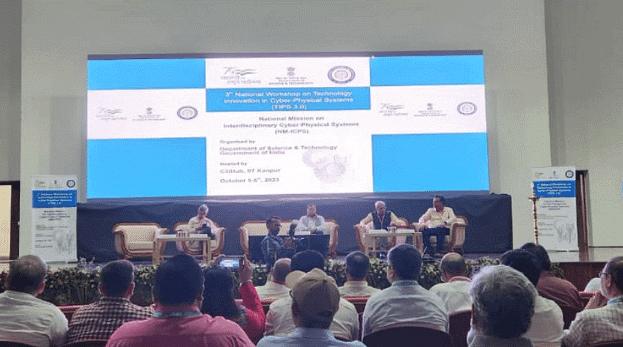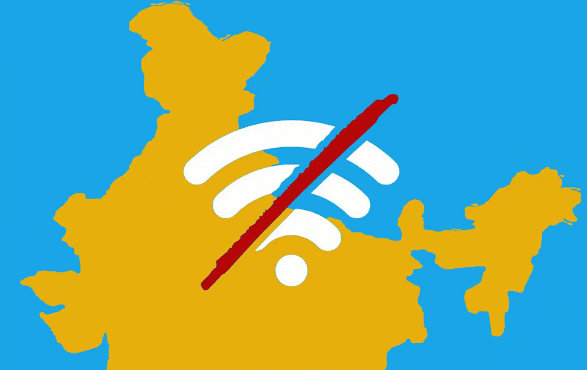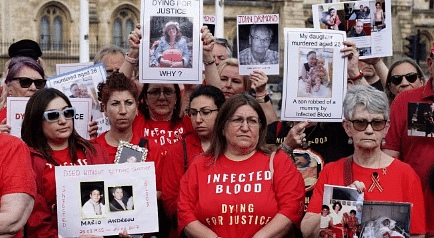Weekly Current Affairs (15th to 21st May 2024) | General Test Preparation for CUET UG - CUET Commerce PDF Download
Georgia Adopts Controversial ‘Foreign Agents’ Bill Amid Protests

Overview of the Bill
- Georgia's parliament passed a contentious "foreign agents" bill on May 14, despite significant opposition nationally and internationally. According to the bill, entities such as news outlets and NGOs receiving over 20% of their funding from sources outside the United States must register as "foreign agents."
Content and Implications
- Concerns have emerged regarding the potential replication of stringent laws seen in countries like Russia, which have been utilized to stifle dissent and control civil society. The passage of this bill could jeopardize Georgia's aspirations to join the European Union, contradicting the government's pro-EU and NATO stance.
Justifications and Criticisms
- Advocates of the bill, including Bidzina Ivanishvili, argue that it is essential for transparency in NGO funding and to prevent interference from Western nations in Georgian affairs. Conversely, opponents like President Salome Zourabichvili view it as a mirror of repressive Russian legislation aimed at curtailing free speech and democracy, potentially paving the way for increased Russian influence.
Public Response and Government's Stance
- The reintroduction of the bill sparked widespread protests across Georgia, with reports of violent clashes between civilians and law enforcement. Prime Minister Irakli Kobakhidze remains resolute in passing the bill, citing popular support and the necessity for national sovereignty, despite significant internal opposition and the prospect of sanctions from other nations.
International Reaction
- Numerous foreign rights organizations and the European Union have expressed deep concerns over the bill, asserting that it contradicts democratic principles and could impede Georgia's EU accession. Both domestic and international observers are closely monitoring developments, apprehensive about the implications for democracy and global relations in the long term.
What is EU Accession Politics?
Criteria for EU Accession
- To become an EU member, countries must align their political, economic, and legal systems with EU standards, as outlined in the 1993 Copenhagen Criteria.
Longest EU Accession Bids
- Turkey holds the record for the lengthiest EU accession process, initiated in 1987.
EU Accession Applications
- Iceland submitted an EU membership application in 2009, but officially withdrew it in 2015.
EU Enforcement Mechanisms
- The EU may employ freezes or sanctions to compel candidate countries to enact necessary reforms, exemplified by actions taken regarding the Serbia-Kosovo issue.
Focus Areas During Accession
- Emphasis is placed on combatting corruption and restructuring governance processes during the accession process, as highlighted by the experiences of Romania and Bulgaria upon their 2007 accession to the EU.
National Workshop Boosts Deeptech Startups and Investment in India

- On May 13 and 14, 2024, the 4th National Workshop on Technology Innovation in Cyber-Physical Systems, known as TIPS 4.0, was held.
- The event was organized by the Department of Science and Technology (DST) as part of the National Mission on Interdisciplinary Cyber-Physical Systems (NM-ICPS) at IIT Bombay's Technology Innovation Hub for IoT & IoE (TIH-IoT).
Event Highlights and Participation
- TIPS 4.0 focused on deeptech startups, with 48 startups showcasing their projects to 35 senior venture capitalists and seed investors.
- Investors committed funding to 44 startups, marking a significant advancement in the sector.
Keynote Speakers and Statements
- Notable figures like Shireesh Kedare, Abhay Karandikar, and Ekta Kapoor emphasized the importance of transitioning ideas from research to commercialization.
Investor Engagement and Industry Reflections
- Investors like Sanjay Sehgal praised the innovation displayed by Indian entrepreneurs, indicating ongoing interest in India's deeptech landscape.
Role of NM-ICPS
- The NM-ICPS initiative aims to foster collaboration among stakeholders from various sectors to promote entrepreneurship and facilitate the marketability of CPS products.
- Through 25 Technology Innovation Hubs nationwide, the project supports advancements in critical technologies such as cybersecurity, robotics, and AI.
Cyber-Physical Systems (CPS)
- Interdisciplinary Approach: NM-ICPS integrates diverse fields to enhance CPS development through the expertise of specialists from different domains.
- Innovation Hubs: The establishment of 25 Technology Innovation Hubs across India serves as focal points for research, innovation, and exploration in key technological domains.
- Technological Progress: India's focus on cutting-edge technologies like AI, robotics, and cybersecurity underscores its ambition to lead global technological advancements.
- Economic Impact: The project fuels economic growth and job creation by fostering entrepreneurship and facilitating the adoption of new technologies.
- Collaborative Endeavors: NM-ICPS exemplifies successful collaboration among academia, industry, government, and international partners to address complex challenges.
- Vision for New India: Aligned with India's aspirations for economic prosperity and technological advancement, NM-ICPS contributes to building a technologically empowered nation.
India Proposes Digital Competition Bill, 2024 Against Tech Giants
The government of India has put forth the Digital Competition Bill, 2024, drawing inspiration from similar regulatory frameworks in Europe. The primary objective of this proposed legislation is to oversee the activities of major tech companies like Google, Facebook, and Amazon, ensuring that they do not abuse their dominant market positions.
Key Proposals of the Digital Competition Bill
- Predictive Regulation: The bill suggests a proactive regulatory approach that aims to prevent anti-competitive behaviors before they manifest, in contrast to the current reactive framework.
- Significant Entities: The proposal suggests identifying Systematically Significant Digital Enterprises (SSDEs) based on factors like revenue, user base, and market impact. These entities would face restrictions on certain practices such as self-preferencing.
- Associate Digital Enterprises (ADEs): The legislation also looks to regulate ADEs that leverage shared data within their corporate group, ensuring their activities do not undermine fair competition.
Criticism and Industry Concerns
- The Digital Competition Bill has encountered opposition primarily from major tech companies, which argue that the stringent regulations could lead to increased compliance requirements and hinder innovation.
- There are apprehensions regarding arbitrary decision-making by the Competition Commission of India (CCI) and the potential repercussions on small businesses operating on digital platforms.
Fostering Digital Competition
- Government representatives advocate for this bill by emphasizing the history of anti-competitive conduct by tech giants and the necessity for a framework that can effectively manage the dynamics of the digital market. The ultimate objective is to promote a level playing field for new players and smaller enterprises, fostering innovation and healthy competition within the digital sphere.
More About Digital Markets Act (DMA)
The Digital Markets Act (DMA) is a significant legislative initiative implemented by the European Union to enhance competition in the digital realm. Enforced in 2022, it specifically targets major online platforms, known as "gatekeepers," including companies like Google, Apple, and Facebook.
- The DMA prohibits self-preferencing practices and mandates the interoperability of messaging services.
- It enforces data portability, making it easier for users to switch their data to alternative services.
- Penalties of up to 10% of global turnover can be imposed for non-compliance, illustrating its rigorous regulatory stance.
- The primary aim of the DMA is to expand consumer choices and promote a fair and transparent digital economy.
India Tops Global Internet Shutdowns for the Sixth Year

- India had the highest number of Internet shutdowns globally in 2023, marking the sixth consecutive year for this occurrence.
- 116 deliberate Internet disconnections were recorded across various regions in India, as documented by the Keep It On coalition, a civil advocacy group.
Reasons for Internet Shutdowns
- Internet shutdowns are often attributed to factors such as racial tensions, ongoing criminal activities, and examination periods.
- These actions are primarily taken to curb the dissemination of false information during critical situations or to prevent cheating in exams.
- However, criticisms have emerged regarding the broad nature of these shutdowns and their significant collateral consequences.
Effects of Internet Shutdowns
- In regions like Manipur, Internet shutdowns have impeded the documentation and reporting of severe human rights violations like murder, violence against women, and arson.
- Such disruptions have altered the accountability mechanisms for individuals perpetrating these heinous acts.
- Moreover, businesses and services reliant on Internet connectivity have suffered, amplifying the social costs of these shutdowns.
Regional Impact and Noteworthy Incidents
- Internet shutdowns tend to impact larger geographical areas rather than isolated locales.
- In 2023, 64 shutdown orders affected multiple districts within the same state or region.
- For instance, racist violence prompted 47 shutdowns in Manipur, while the search for Amritpal Singh led to a statewide Internet ban in Punjab.
Economic Ramifications of Internet Blocks
- GDP Growth: Internet disruptions significantly hamper GDP growth. A case in point is the $2.4 billion global economic loss between 2015 and 2016 due to Internet outages, as reported by the Brookings Institution.
- Impact on Small Businesses: Small enterprises lose access to markets and essential services when Internet connectivity is severed, hindering their operations and revenue generation.
- Innovation Challenges: Internet blocks disrupt research, development, and digital innovation processes, impeding technological advancements and reducing competitiveness for affected businesses.
- Investor Confidence: Internet disruptions erode investor trust, potentially leading to decreased foreign direct investment and hindering long-term economic growth.
- Indirect Economic Effects: Business operations may suffer, contributing to higher unemployment rates and exacerbating social unrest, ultimately destabilizing the economy and creating a cycle of instability.
UAE Launches 10-Year Blue Residency Visa for Environmentalists
Introduction to Blue Residency Card
- The UAE introduced the Blue Residency card in 2023 to demonstrate its commitment to environmental conservation.
- Sheikh Mohammed bin Rashid unveiled this visa program, offering a decade-long stay to individuals who have excelled in environmental protection.
Eligibility and Application Process
- The Blue Residency visa caters to professionals in various environmental domains, including marine and terrestrial conservation, air quality enhancement, sustainable technology utilization, and promotion of the circular economy.
- Applications are submitted to the Federal Authority for Identity, Citizenship, Customs, and Port Security.
- Authorities may recommend exceptional candidates for this extended residency status.
Context and Evolution of UAE Residency Visas
- Previously, standard UAE residency visas lasted for two years until the introduction of the Blue Residency visa.
- In 2019, the nation initiated the Golden Visas program, providing a decade-long visa for investors, business owners, and skilled professionals.
- In 2022, Green Visas were introduced, valid for five years and targeting skilled workers, freelancers, and entrepreneurs.
- These visa updates reflect UAE's focus on attracting and retaining global talent across diverse sectors to bolster the economy sustainably.
Insights into Blue Residency Visa
- The Blue Residency visa, an extension of the Golden Visa scheme, was introduced in 2023.
- It caters to highly skilled professionals, investors, and business owners, facilitating long-term residency options.
- Key facets include eligibility for top athletes, artists, computer scientists, and technologists, a validity of up to five years, and renewal possibilities.
- The visa simplifies living and working in the UAE for individuals lacking a national sponsor, with provisions for family members to accompany applicants.
Sunil Chhetri Announces His Retirement

- The renowned leader of the Indian national football team, Sunil Chhetri, has officially declared his retirement, marking the conclusion of an illustrious and successful career.
- Sunil Chhetri, a distinguished professional footballer, has notably served as the captain for both the Indian national team and Kolkata FC, showcasing exceptional leadership qualities.
- Throughout his extensive tenure, Chhetri has been a pivotal figure in Indian football renowned for his goal-scoring prowess, leadership acumen, and admirable demeanor.
Contributions to Football
- Sunil Chhetri has significantly influenced the landscape of Indian sports, particularly in elevating the status of football within a nation traditionally dominated by cricket.
- He holds remarkable records for the highest number of goals scored and appearances made for the Indian national team, underscoring his lasting impact on the sport.
International Trophy won for India
- India has clinched four Nehru Cups and five South Asian Football Federation (SAFF) Championships, with Sunil Chhetri playing an integral role in each victory.
- Notably, India's triumph in the AFC Challenge Cup in 2008 secured their entry into the AFC Asian Cup after a 27-year hiatus, with Chhetri's stellar performance proving instrumental.
Honour for Sunil Chhetri
- Sunil Chhetri has been honored as the All India Football Federation (AIFF) Male Player of the Year on seven occasions, highlighting his consistent excellence.
- In recognition of his outstanding contributions to sports, he was bestowed with the prestigious Arjuna Award in 2013, India's second-highest sporting accolade.
- His remarkable achievements were further acknowledged with the Rajiv Gandhi Khel Ratna Award in 2021 and the Padma Shri in 2019, India's top two sports and third-highest national honors, respectively.
- Additionally, FIFA honored Sunil Chhetri with a documentary titled "Captain Fantastic" in 2022, underscoring his global recognition and impact on the sport.
More About Sunil Chhetri
- Sunil Chhetri stands as one of the premier goal scorers worldwide and serves as the esteemed captain of the Indian national football team.
- His football journey commenced in 2002 with Mohun Bagan at the age of 17, and he made history as the third Indian player to compete outside South Asia upon joining the Kansas City Wizards in Major League Soccer in 2010.
- Chhetri's leadership was pivotal in India's re-entry into the AFC Asian Cup after 27 years, following their victory in the 2008 AFC Challenge Cup.
- He holds the distinction of being the first Indian player to achieve the milestones of scoring 50 and subsequently 75 goals for his nation, showcasing his exceptional talent on the field.
- Apart from his on-field feats, Chhetri has actively contributed to the growth of Indian football, endorsing brands like Puma and championing the sport's development initiatives.
UN Calls For Global Cooperation And Pandemic Treaty To Fight AMR
- Deputy Secretary-General of the United Nations Amina Mohammed emphasized the urgency of finalizing the international pandemic treaty promptly during a meeting involving various stakeholders.
- The looming threat of Antimicrobial Resistance (AMR) to global health underscores the critical nature of this treaty.
- An upcoming high-level meeting on AMR, coinciding with the General Assembly later this year, will further address this issue.
- The 77th World Health Assembly (WHA) is slated to advance discussions on the treaty's future on May 27, 2024, despite some opposition from the UK government.
Understanding the Treaty Amidst Misinformation
- Concerns and reservations from certain UK politicians and public figures regarding the pandemic treaty center around fears of excessive empowerment of the World Health Organization (WHO) at the expense of national sovereignty.
- The WHO has refuted these assertions, clarifying that the treaty's objective is not to impose lockdowns or control vaccine distribution but to foster global collaboration in addressing emerging health threats.
Role of the Treaty in Combating AMR
- The treaty acts as a unifying force, mobilizing global endeavors against Antimicrobial Resistance (AMR), a significant menace to recent healthcare advancements.
- AMR diminishes the efficacy of medications against infections, posing challenges to treatment. Amina Mohammed highlighted alarming projections, anticipating a substantial surge in mortality rates by 2050.
- AMR's repercussions extend beyond health, exacerbating economic and food security crises on a global scale.
More About AMR (Antimicrobial Resistance)
- Antimicrobial Resistance (AMR) occurs when microbes evolve defenses against drugs designed to eliminate them, resulting in approximately 700,000 annual fatalities, a figure projected to escalate to 10 million by 2050, surpassing cancer-related deaths.
- The misuse of antibiotics in both medical and agricultural contexts stands out as a primary driver of AMR.
- A mere fraction of global funding dedicated to infectious disease research—less than 5%—is allocated to combatting AMR.
More About World Health Assembly
- The World Health Organization (WHO) operates through the World Health Assembly (WHA), convening annually in Geneva, Switzerland, with delegates from 194 member states.
- The WHA plays a pivotal role in formulating major health policies, appointing the Director-General, overseeing financial matters, budget approval, and evaluating reports from diverse health-related services.
- Historical milestones such as the declaration of smallpox eradication in 1980 and the establishment of the International Health Regulations (IHR) in 1969, revised in 2005 for managing public health crises, underscore the WHA's significance.
ICMR Warns Against Misuse of Non-Stick Teflon Cookware

Both the Indian Council of Medical Research (ICMR) and the National Institute of Nutrition have recently updated their dietary guidelines. The new rules emphasize the importance of using non-stick cookware correctly to avoid potential health risks.
Risks Associated with Teflon-coated Cookware
- Teflon, a substance composed of carbon and fluorine, is commonly used to coat non-stick pans for easier cooking and cleaning.
- Heating Teflon-coated pans above 170°C can release harmful fumes, especially when exposed to high temperatures for prolonged periods.
Instructions for Safe Usage
- Do not heat an empty non-stick pan rapidly as it can reach high temperatures quickly.
- Cook over low to medium heat to prevent the pan from overheating.
- If fumes occur, use proper ventilation like an exhaust fan to eliminate them.
- Avoid using metal utensils on Teflon surfaces to prevent scratching; opt for wooden or plastic utensils instead.
- Regularly inspect the pan for damage such as peeling or deep scratches, indicating the need for a replacement.
Cleaning and Maintenance
- Avoid using abrasive cleaners or scrubbing pads; clean gently with a soft sponge and mild soap.
- Rinse and dry the cookware thoroughly after each wash to prevent food or soap buildup.
Alternative Cookware Choices
- Consider using stainless steel, cast iron, clay, or stone cookware as safer alternatives to non-stick options.
- While these materials may require more oil for cooking, they are suitable for high-temperature cooking and pose fewer health risks.
Why UK is considering Changes To the Graduate Route Visa?
- The British Prime Minister, Rishi Sunak, is contemplating alterations to the Graduate Route Visa (GRV) program.
- Proposed changes aim to restrict GRVs to the "best and brightest" to reduce the overall number of foreign students and combat misinformation spread by education agents.
- Indians, the largest group receiving study visas for the UK, could be significantly impacted by these changes.
What is a Graduate Route Visa (GRV)?
- The Graduate Route Visa (GRV) was introduced in July 2021, allowing foreign students to remain in the UK for up to three years post-graduation for job searching.
- Eligible applicants must hold a valid study visa in the UK at the time of application and provide proof of course completion from their institution.
Indians and the GRV
- Indian students favor the GRV as it facilitates post-graduation employment and eases settlement in the UK, sometimes enabling family reunification.
The Popularity of the UK as a Study Destination for Indians
- Student visas issued to Indians surged by 54% from June 2022 to June 2023, underscoring the UK's appeal to Indian students.
- Approximately 42% of GRV holders are Indian, surpassing all other nationalities.
- Changes to the GRV system could disproportionately affect Indian students and form part of broader UK discussions on immigration and education policies.
More About Graduate Route Visa (GRV)
- The GRV allows foreign graduates from approved UK universities to stay in the UK for work or job hunting post-graduation.
- Introduced in July 2021, the visa does not require sponsorship or a minimum salary but mandates at least a bachelor's degree.
- Duration of stay: two years for bachelor's or master's degree holders, and three years for PhD holders.
- Permissible actions include job changes, remote work, and career advancement within the UK, with no extension options available.
- Applications must be submitted from within the UK, and graduates can transition to settlement visas if eligible.
- No application limit exists, allowing all qualified graduates to apply.
Sariska Tiger Reserve: Supreme Court Orders Mine Closures

- The Supreme Court directed the Rajasthan government on May 15 to shut down 68 mines situated within one kilometer of the Sariska Tiger Reserve. This decision aims to combat illegal mining activities that have plagued the region since the 1990s.
- Legally, this ruling aligns with provisions from the Wildlife Protection Act of 1972 and the Environment Protection Act of 1986, both of which prohibit quarrying activities near tiger reserves.
Historical Context and Judicial Interventions
- A local NGO raised concerns about mining in Sariska to the Supreme Court in October 1991 through a Public Interest Litigation (PIL). Following an interim order, mining was immediately halted, and a fact-finding committee was established by Justice M. L. Jain.
- Subsequent investigations confirmed the significance of the 800 square kilometer protected area. By April 1993, the court had ordered the closure of 262 mines within the region.
- Despite these efforts, violations persisted, leading to the imposition of a one-kilometer safety buffer around the reserve. However, enforcement was hindered by inconsistencies across states and disagreements over boundary demarcations.
Continued Challenges and Supreme Court's Reinforcement in 2020s
- In the 2010s, the Supreme Court intensified its stance, reiterating its 2006 decision to prohibit mining within a one-kilometer safety zone around Sariska's Jamua Ramgarh.
- Challenges persisted for another decade until 2023, prompting the Supreme Court to adapt its approach while maintaining a stringent ban on mining near conservation areas.
Issues with Boundary Demarcation and Local Concerns
- Unclear reserve boundaries have hindered the implementation of safety measures, facilitating illegal mining activities due to discrepancies between official records and actual maps.
- Local residents have expressed apprehensions, particularly regarding the inclusion of revenue villages within the tiger reserve without due consideration, which they argue violates their rights.
More About Sariska Tiger Reserve
- Sariska Tiger Reserve is located in the Alwar district of Rajasthan, India.
- Established as a wildlife reserve in 1955, it was designated as a tiger reserve in 1978.
- By 2004, all tigers in Sariska had fallen victim to poaching, prompting efforts to reintroduce tigers from Ranthambore in 2008, marking a successful initiative in India.
- The reserve boasts medieval temples, a fortress, and a diverse array of wildlife such as leopards, sambars, and chitals, in addition to its tiger population.
- Sariska Tiger Reserve is a participant in India's Project Tiger initiative, covering an approximate area of 800 square kilometers.
Bacterial Pathogens Priority List Updated by WHO
- Antibiotic resistance poses a significant global health challenge as bacteria develop resistance to medications, rendering infections difficult to treat.
- The World Health Organization (WHO) recently updated the Bacterial Priority Pathogens List (BPPL) as a crucial step to address this issue effectively.
- The revision aims to prioritize bacteria posing the most significant threats and facilitate the development of new successful antibiotics.
What is Bacterial Priority Pathogens List (BPPL)?
- The BPPL categorizes antibiotic-resistant germs into groups to focus research and development efforts on creating effective treatments.
- Its primary objective is to concentrate resources on combating the most dangerous bacteria efficiently, aiding in the fight against antibiotic resistance globally.
Importance of the BPPL Update
- Critical Priority: This category includes resilient germs like Acinetobacter baumannii and rifampicin-resistant Mycobacterium tuberculosis, known for their resistance and rapid spread.
- High Priority: Pathogens such as Methicillin-resistant Staphylococcus aureus (MRSA) and Vancomycin-resistant Enterococcus faecium are extremely hazardous in healthcare settings.
- Medium Priority: The medium-priority group comprises pathogens like Group A and B Streptococci, demanding attention to prevent widespread health impacts.
Updated Strategies and Your Role
- The fight against antibiotic resistance necessitates collaborative efforts from both healthcare providers and the public.
What You Can Do to Contribute:
- Antibiotic Stewardship: Adhere to prescribed antibiotic usage, complete the full course, and avoid requesting antibiotics for viral infections.
- Hygiene Practices: Maintain proper hand hygiene, rigorous food hygiene, and clean environments to prevent infection spread.
- Vaccination: Stay updated with vaccinations to reduce bacterial infection risks and indirectly combat antibiotic resistance.
- Awareness and Advocacy: Educate yourself about antibiotic resistance, advocate for prudent antibiotic use, and support infection control measures through public policies.
More About Antibiotic Resistance
- Antibiotic resistance, a significant global threat, occurs when bacteria evolve to resist antibiotics, complicating the treatment of common infections.
- Resistance can lead to severe consequences, as exemplified by the emergence of Methicillin-resistant Staphylococcus aureus (MRSA) shortly after methicillin's introduction.
- Soil bacteria serve as a primary natural source of antibiotics, indicating a long history of antibiotic development.
- Some bacteria possess genes making them "pan-resistant," impervious to all existing drugs. Overuse of antibiotics in agriculture significantly escalates resistance risks.
- Stricter regulations aim to curtail non-essential antibiotic use, crucial for safeguarding future medical treatments. Researchers predict a grim scenario with antibiotic-resistant bacteria causing millions of deaths annually by 2050 if current trends persist.
UK Contaminated Blood Scandal

- The independent inquiry into the contaminated blood crisis in the UK is set to unveil its conclusions in May 2024. This incident is considered among the most severe instances of negligence in the history of the National Health Service (NHS).
- The British government has allocated over £10 billion as compensation for individuals who contracted HIV or hepatitis from contaminated blood products during the 1970s and 1980s.
- A vigil was held in Westminster to honor the victims on the eve of the report's release.
Origins of the Contaminated Blood Scandal
- In the 1970s and 1980s, a large number of individuals, predominantly those with hemophilia, received blood products contaminated with HIV and hepatitis.
- The introduction of Factor VIII, a blood-clotting agent derived from plasma from numerous donors, including high-risk groups like US prisoners and intravenous drug users, was a primary factor in the crisis.
- This catastrophe stands out as one of the most devastating medical tragedies due to the extensive harm inflicted and lives lost.
Government and Medical Response
- The initial responses from both the government and the medical community to the contamination were sluggish and inadequate.
- Efforts to address the HIV contamination, such as heat treatment of Factor VIII, were not implemented until 1985. Hepatitis C screening for blood donors only commenced in 1991.
- Delayed reactions were largely attributed to concerns over expenses and a lack of swift action, despite early warnings from international bodies regarding the risks associated with tainted blood products.
Current Developments and Expected Outcomes
- The forthcoming report from the investigation, scheduled for 2024, is anticipated to hold pharmaceutical companies, healthcare providers, and the government accountable.
- The report is expected to recommend substantial compensation for the victims and their families, a demand actively advocated by activists.
- Prior to the report's release, the government has already made interim payments to underscore the gravity of the situation.
- The contaminated blood crisis not only sheds light on a dark chapter in NHS history but also prompts reflection on managing public health risks, the ethical practice of medicine by healthcare professionals, and ensuring accountability in public health leadership.
More About Contaminated Blood Scandal
Overview of the Scandal
- The contamination saga spanned from the 1970s to the 1990s.
- The crisis predominantly affected the United States, United Kingdom, and Canada.
- Individuals with hemophilia were among the thousands who contracted HIV and Hepatitis C.
What Caused and Spread
- Contaminated blood products, particularly Factor VIII concentrate, played a significant role in the spread of the diseases.
- Factor VIII was derived from pooled plasma from up to 60,000 donors, elevating the risk of contamination. Many donors belonged to high-risk demographics, including incarcerated individuals.
Response and Accountability
- By the mid-1980s, awareness about the risks had grown, but the measures taken were either belated or insufficient.
- Official investigations, such as the Archer Report in 2009, aimed to identify those responsible for the crisis.
- Since 2017, a public review in the UK has been exploring avenues to deliver justice and aid to the victims.
|
164 videos|800 docs|1160 tests
|















